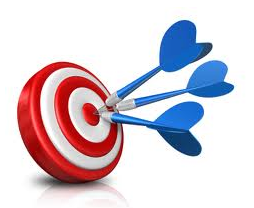The careers in marketing intelligence require individuals who have the proven ability to translate business needs into technical specifications and marketing recommendations. This means that they must know how to apply strategic objectives into market-specific programs. They must have a solid understanding of B2B and B2C marketing trends and techniques. Those who have the ability to turn data into marketing intelligence and action-oriented goals will excel in the following careers.
Digital Marketing Campaign Manager
These professionals are responsible for all aspects of lead management operations, which includes CRM integration, marketing automation tools and communication testing and optimization. For example, they may be tasked with improving email campaigns to increase customer conversion, retention and reactivation rates. Digital marketing campaign managers enhance the organization’s marketing efforts by streamlining the platforms and processes that enable efficient business activities.
When first hired, they may be asked to refine existing marketing automation infrastructures by fine tuning metrics that measure operational effectiveness. They work with sales managers to provide sales insights, pipeline analytics and consolidated quantitative and qualitative information from a variety of resources. Digital marketing campaign managers continually analyze the performances of campaigns and deliver reports that highlight how marketing programs impact revenue.
Market Intelligence Researcher
Market researchers and intelligence analysts perform analytical activities for marketing managers and senior leadership that identify key issues, synthesize information and integrate new ideas into existing programs, according to the Bureau of Labor Statistics. They must provide actionable insights that enhance business planning and decision making. Market intelligence researchers provide on-going data gathering related to industry trends, campaign performance, competitor activities and evolving consumer behaviors. They organize and perform research, then interpret and present recommendations to leaders.
Market intelligence researchers provide consumer and end user insights at all stages of marketing projects in order to identify opportunities, evaluate potential benefits and providing guidance during new product or service development. They also continually monitor industry and consumer trends to identify ideas that can be directly applied to sales funnels, techniques and presentations to customers. They may be involved with on-site product tests or consumer research studies with outside agencies.
Sales Business Analyst
Sales business analysts collect and provide business and marketing intelligence to support operational activities and key client groups. They collaboratively develop sales and customer analytical capabilities to identify growth opportunities and new potential business strategies. They may be asked to summarize field sales performances by analyzing key initiatives and incentive plans, or they may be asked to analyze account data to identify sales leads and trends.
Sales business analysts leverage all available information sources to formulate sales execution proposals. They identify opportunities to drive sales and compliance, and then communicate their recommendations with sales leaders. They may suggest that business leaders modify processes to meet the changes in business requirements or they may request to identify new customer acquisition opportunities. They also create sample account plans to drive direct sales efforts and revenue results.
Related Resource: Become a Purchasing Manager
One of the newer careers in marketing intelligence is an account executive. These professionals are outside sales experts who acquire more new customers, foster customer relationships, expand revenues with customers and contribute to sales and marketing intelligence gathering.
